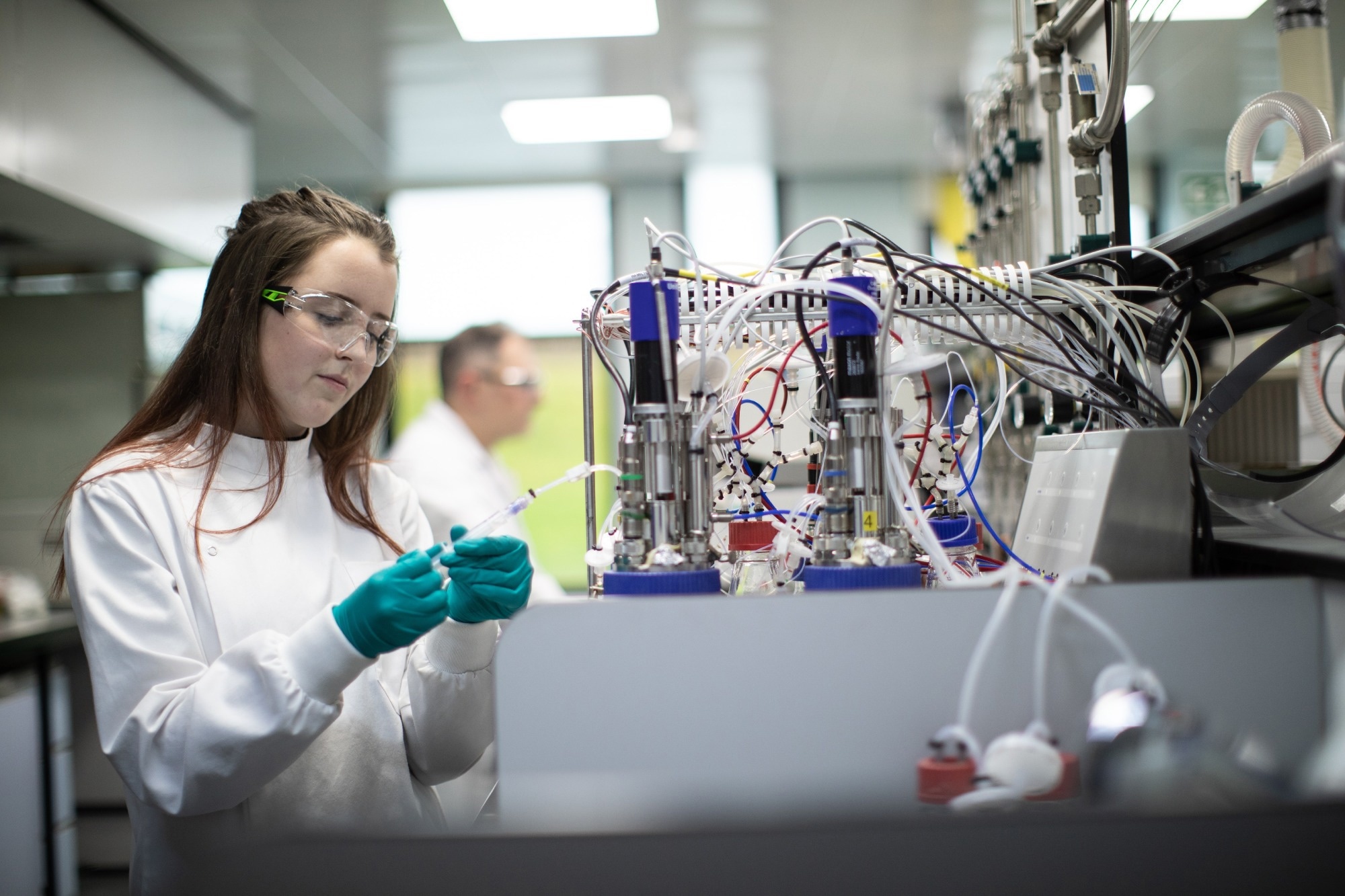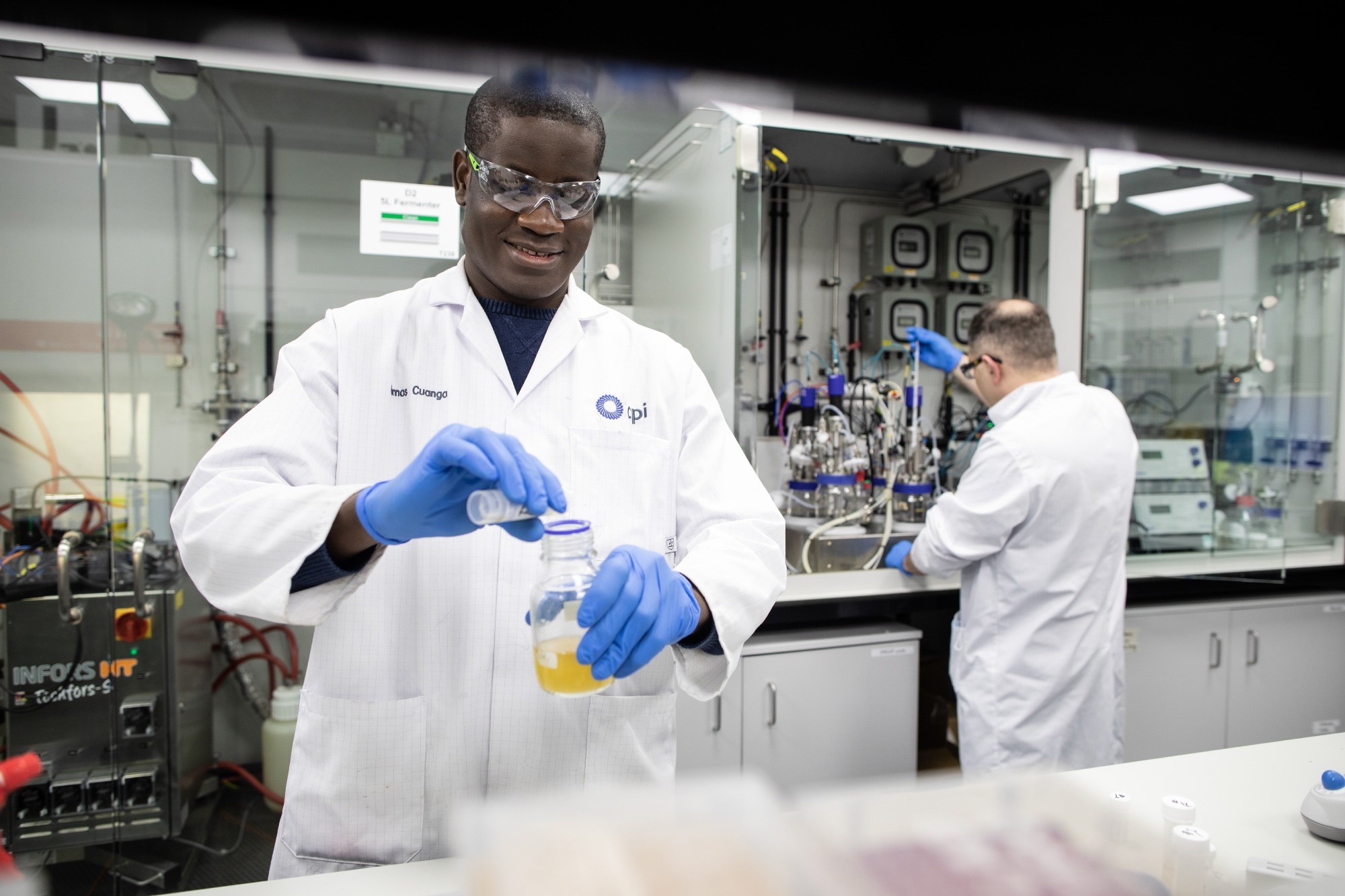With the ChemUK trade show underway, AZoM speaks with CPI's business development director about the wide-ranging work that they do and about the battery technology landscape in particular. CPI will be hosting a panel discussing battery innovation at ChemUK.
Please could you introduce yourself and your professional background?
My name is Dr. Barrie Rhodes, and I am a Business Development Director at CPI. My early career began in technical roles in cGMP pharmaceutical manufacturing environments and later moved to roles in areas such as operations management, procurement, R&D, and innovation development.
My most recent career activities outside of CPI have been in the area of service sales in the pharmaceutical sector. I have been in my current role at CPI for over five years now, and my role is wide-ranging but includes linking companies to the innovation services we offer to provide solutions in areas such as novel battery development, material development, and process development in innovative areas, including sustainable materials.
Could you describe the wide range of work that CPI does in its mission to bring together academia, business, and government?
We catalyze the adoption of advanced technologies and manufacturing solutions to benefit people, places, and our planet. CPI connects the dots within the innovation ecosystem to make great ideas and inventions a reality.
We’re a pioneering social enterprise that accelerates the development, scale-up, and commercialization of deep tech and sustainable manufacturing solutions. Through our incredible innovation experts and infrastructure, we look beyond the obvious to transform healthcare and drive toward a sustainable future.

Image Credit: CPI
As a trusted partner of industry, academia, government, entrepreneurs, and the investment community, we’re the catalyst for delivering smart AgriFoodTech, energy storage, HealthTech, materials, and pharma innovations. We believe that by working together we can build a better collective future, and as part of the High Value Manufacturing Catapult, we facilitate access to world-class organizations to deliver transformation across industries.
Why should companies and universities partner with CPI?
Our broad range of expertise in chemistry, materials science, and chemical engineering helps our partners manufacture materials and then develop processes to support the drive toward net zero. We work across a spectrum of industry sectors from farming to pharmaceuticals and in collaboration with academia, government, and enterprises ranging from start-ups to large corporates.
As an example, our expertise in polymer formulation delivers innovative solutions that are helping reduce environmental impact for clients – everything from packaging applications to tree planting. We have recently developed our expertise in formulating nature-based polymers using seaweed, for example, and other biodegradable products.
Another key area for us is energy materials, where we're supporting sustainable transport initiatives – in particular, electric vehicles and any application where energy storage is required. CPI can formulate battery materials, manufacture cells, test them, and even look at pilot-scale manufacture.
And this is where place-based innovation comes in. We’re working with universities, the UK Battery Industrialisation Centre (UKBIC), and other members of the High Value Manufacturing Catapult, like WMG, to develop end-to-end capability in the UK – and in the northeast in particular – to support companies to innovate. It’s an exciting time.
CPI covers many different areas of industry, from biotechnology to photonics. What drove you to focus on your chosen industry capabilities?
Our development in recent years was based on a strategy to support gaps in the market where innovation was required and a necessity given the social and economic demands of developments in industry. This has led to developments in capability around biotechnology, health technology, large-molecule active pharmaceuticals, and medicines manufacturing. My specific area is to support the development and innovation in the area of sustainable materials. A key sector that is strongly driven by socioeconomic factors to drive positive change.
CPI will be contributing to the show program at ChemUK through three featured panel sessions. Why is it important for CPI to engage with the chemical industry?
CPI is strongly embedded in and partners with a large number of organizations in the chemical industry. Organizations have the ability to radically innovate their products and processes with support from CPI. Furthermore, CPI’s vision is to enable a healthier and more sustainable future through deep tech innovations. This approach is strongly aligned with many in the chemical sector and is, therefore, a very good fit.
One of your panel sessions at ChemUK focuses on battery materials innovation. Why does this topic deserve attention?
The North East is one of the leading destinations in the world for advancements in clean energy, and because of this, our region has a significant role to play in delivering the UK’s net zero targets. We’re excited to be supporting the UK battery ecosystem to improve battery sustainability, performance, and longevity, from optimizing raw materials to supporting reuse and recyclability.

Image Credit: CPI
Using our high-tech facilities and research expertise, we can identify less hazardous and more sustainable chemicals and higher-performing formulations to boost battery efficiency and reduce the impact on the environment.
How significantly do you see the battery landscape changing over the next decade?
We are already seeing a significant transition in the battery landscape, and there is no sign that this will decrease or diminish in the future. As organizations across many different sectors look to improve on existing battery technology, R&D will continue to grow and ultimately lead to growth in a diverse array of manufacturing organizations to support both the developing battery supply chain as well as the direct manufacture of batteries and other energy storage systems itself. It is an exciting time, and CPI is very proud to be part of that growth!
What more can visitors see and learn from your presence at the show?
Visitors will find out more about the R&D and manufacturing capability across the UK and how the ecosystem is developing. People will also be able to find out about how CPI can help them to innovate and improve their products and processes.
Are there any interesting developments on the horizon for CPI?
CPI continues to grow and develop in many areas. But to choose one example, CPI has partnered with NEBA (the North East Battery Alliance) to create an ecosystem in the region that includes research and innovation centers, education and skills organizations, the public sector, battery cell manufacturers, and the associated supply chain, to stimulate further growth in the sector.
I am looking forward to seeing this and other activities in the battery materials space develop to leave a long-lasting and positive legacy for both the local region and the UK overall.
More from ChemUK: Supporting the Chemical Industry in Navigating UK REACH
About Barrie Rhodes

Dr. Barrie Rhodes has a Ph.D. in organometallic chemistry and is experienced in pharmaceutical manufacturing in contact manufacturing and contract services and sales roles in the pharmaceutical and formulation sciences area.
Barrie has developed and managed many development and commercial-scale pharmaceutical processes and has more recently focused on commercial development in the pharmaceutical and formulation industries.
Disclaimer: The views expressed here are those of the interviewee and do not necessarily represent the views of AZoM.com Limited (T/A) AZoNetwork, the owner and operator of this website. This disclaimer forms part of the Terms and Conditions of use of this website.